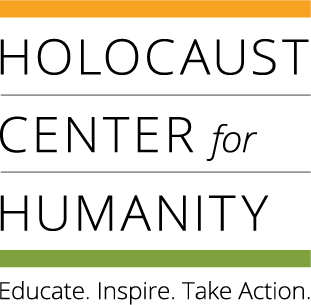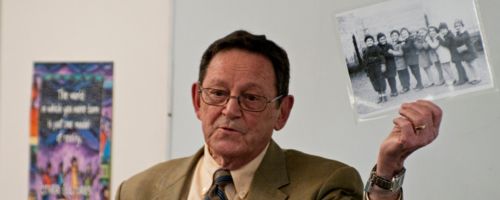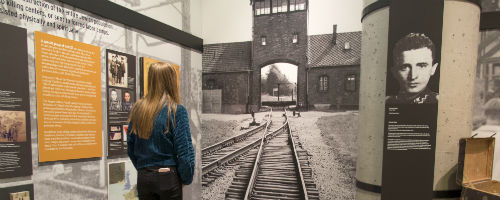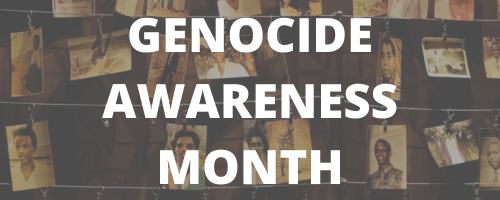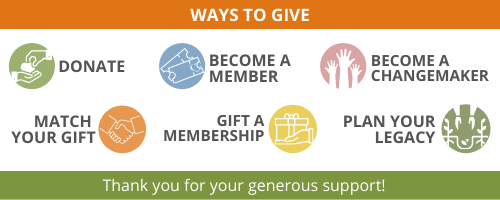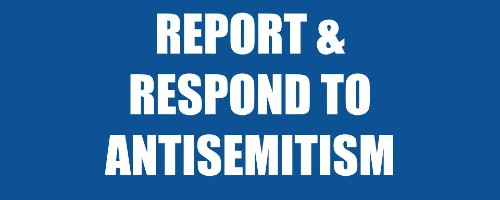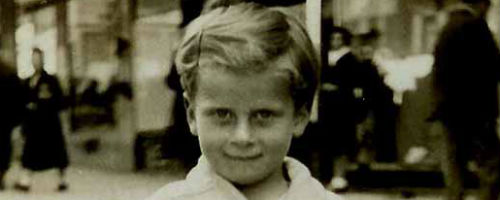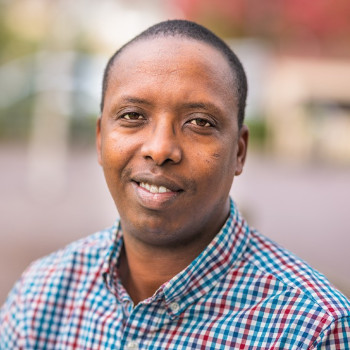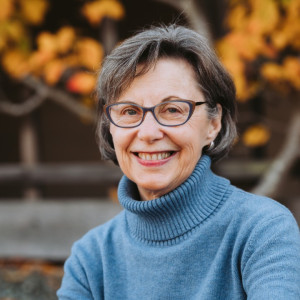

Beverley Silver shares the story of both of her parents, Jewish Holocaust survivors Johanna Stern Moss and Malcolm Moss.
Beverley’s mother Johanna was born in Germany in 1925. As the Nazis came to power, her grandmother, Anna Stern, feared for her granddaughter’s life and made arrangements for Johanna to escape Germany on a Kindertransport.
Leaving her father, grandmother, and extended family, Johanna sailed to England in 1939, where she and 24 other refugee girls lived in a hostel sponsored by a Jewish refugee committee in the town of Middlesbrough. Johanna’s father managed to escape to the United States shortly before World War II broke out. It was too dangerous during wartime, however, for Johanna to travel across the Atlantic Ocean to join him. Instead, Johanna remained in Middlesbrough living with a loving and generous English family, the Levys. Finally, in 1946 she arrived in the United States and was reunited with her father, but tragically, many of her relatives were killed in the Holocaust.
Beverley’s father Malcolm was born Moizesz Moskiewicz in Poland in 1912 to a large Jewish family. He graduated from the Vienna Academy of Design with an ambition to become a clothing designer. Fearful of an impending German invasion of Poland, Malcolm fled to Switzerland in 1938, where, after World War II began, he was interned in a labor camp for Jewish refugees. Malcolm immigrated to the United States in 1945 and joined his brother, his only relative who survived the Holocaust.
Johanna and Malcolm met and married in New York in 1946. Malcolm continued his career as a clothing designer in the United States, and he and Johanna raised three children in New York and Illinois before retiring to San Diego. Malcolm passed away in 1986 and Johanna in 2019.
Beverley Silver spent her career as an art educator, working extensively in K-12 public and private schools, museum, and university settings. Beverley retired in 2021 from Seattle University, where she directed the Job Placement Office in the College of Education. She enjoys spending time with her children and grandchildren, and became a member of the Holocaust Center Speakers Bureau in 2022 with the hope of keeping her parents’ legacy of survival alive.
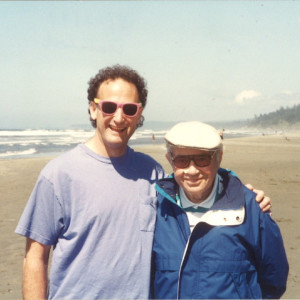
 Tom Heller, MD, is the son of Holocaust survivors.
Tom Heller, MD, is the son of Holocaust survivors.
Tom’s father Paul was born in Chomutov, Czechoslovakia (now Czech Republic) in 1914. As a young student, Paul was the only Jewish student in his class. He attended Charles University and medical school in Prague and graduated in 1938. In March 1939, Nazi Germany invaded and annexed Czechoslovakia. Dr. Heller was poised to leave the country for England, but on the first day of WWII – September 1 – was arrested by the Gestapo for anti-Nazi activity connected to a university group.
He was detained as a political prisoner, sent to Dachau and Buchenwald concentration camps, where he spent 3 ½ years doing hard labor, and then to Auschwitz in 1943. Exploiting his skills as a physician, Dr. Heller was sent by the Nazis to work at a clinic in sub-camp Jawarzno. Dr. Heller was a part of a death march to Gross-Rosen concentration camp before being transported back to Buchenwald in February 1945. Liberation finally came that April. World-famous reporter Edward R. Murrow visited Buchenwald on April 12, and in a live broadcast several days later mentioned Dr. Heller, thus notifying his friends and family that he was alive.
Tom’s mother, Liese Florsheim, was from Germany and had met Paul at Charles University in the 1930s. She was able to escape to the United States in 1938, where she earned a Master’s degree in Social Work. Liese was at the dock to meet Paul when he arrived in New York in 1946 and they were soon married. Dr. Heller became an internationally recognized medical researcher in blood diseases while raising Tom and daughter, Caroline, with Liese.
Tom also became a doctor, and worked for many years in Seattle in a community health center, and subsequently for the U.S. Centers for Disease Control, helping establish HIV treatment services in countries in Asia and Africa. Now retired, he chose to share his family story to help teach students and other audiences the dire consequences of prejudice and hate. Tom joined the Speakers Bureau in 2022. He has three grown children and lives with his wife in Seattle.
Image: Tom Heller with his father Paul in 1994.
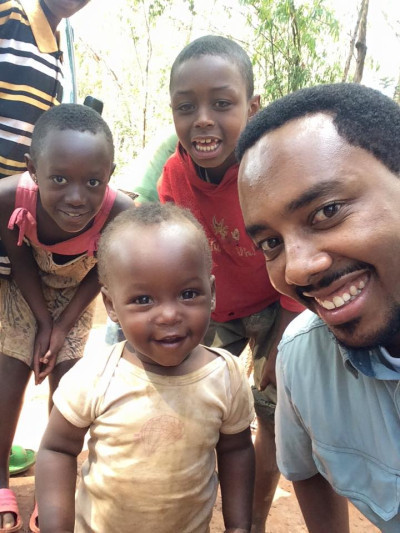
 In 1959, at a time of political unrest in Rwanda, Paul Karemera’s grandparents on both sides of his family left their homes in Rwanda and became refugees in neighboring Uganda.
In 1959, at a time of political unrest in Rwanda, Paul Karemera’s grandparents on both sides of his family left their homes in Rwanda and became refugees in neighboring Uganda.
They belonged to the Tutsi tribe – the group targeted in the Rwandan genocide. Throughout the 1960s through the early 1990s, tribal tensions flared back in Rwanda. Paul, his siblings, and parents remained refugees in Uganda.
As a young student, Paul was harassed and bullied as an outsider in Uganda, despite having been born there. When civil war and then genocide gripped Rwanda in 1990-1993, Paul’s father was active in transporting soldiers over the border of Uganda into Rwanda. These soldiers were part of the Rwandan Patriotic Front (RPF) that fought the genocide’s perpetrators and eventually took over the nation’s government.
At 16, shortly after the genocide against the Tutsi, Paul went back to Rwanda as a “returnee” to the country. Many friends and family had not survived. Paul’s next years involved attending an English language high school and settling into life in Rwanda, which was not easy for him. Nationwide, the genocide’s wounds were still raw. Gacaca courts for restorative
justice were instituted, but many Hutu perpetrators were never apprehended.
Paul has been an English interpreter and travel guide since 2000. In 2009 Paul and his wife, Shelly, founded a travel company, Intore Expeditions, in Rwanda. He now splits time between Seattle and Rwanda. Paul wants students and other audiences in the United States to learn more about Rwandan history and the genocide.
